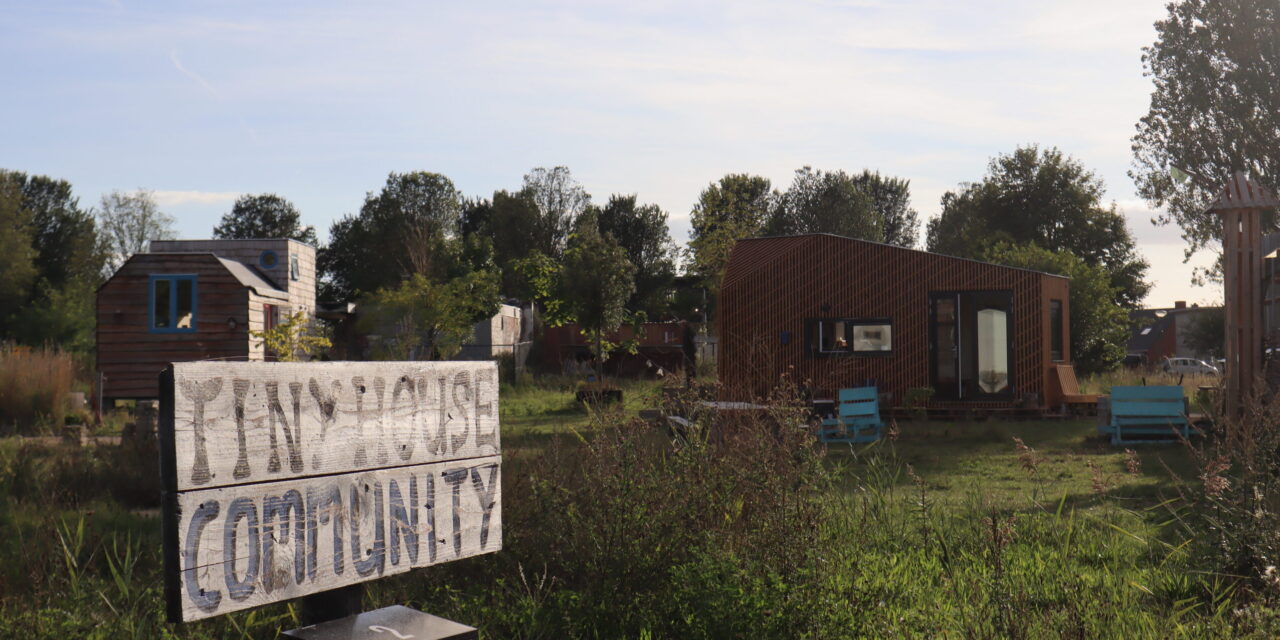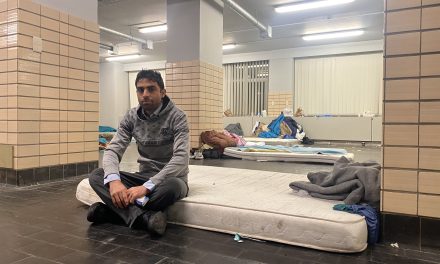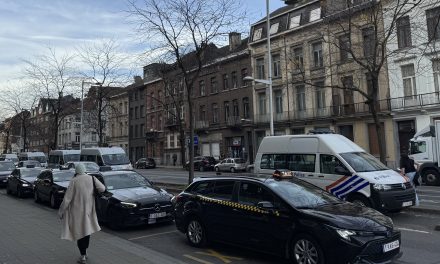A tiny house is a smaller type of residence than many people are accustomed to. All the essential rooms that a regular house would have, are thoughtfully constructed and positioned. There is no set definition or legal requirement that can define what a tiny living place makes a tiny house.
Although the tiny house movement originated in the US, it is spreading and rising in popularity throughout Europe. Many parts of Europe are currently experiencing a housing crisis, including The Netherlands. There are numerous living styles. Tiny houses are a quite new concept for the majority. People choose this way of life for a variety of reasons. Not just the stereotypical vegan tree huggers are willing to live this way. For some it’s about freedom or a lower living cost, while others simply wish to reduce their ecological impact.
The first tiny house in the Netherlands was built in 2015, and since that time more and more people chose for this lifestyle. Such as Janneke Bouman, she’s currently living in a self-build tiny house in the oldest city in the Netherlands, Dordrecht.
Enlarge
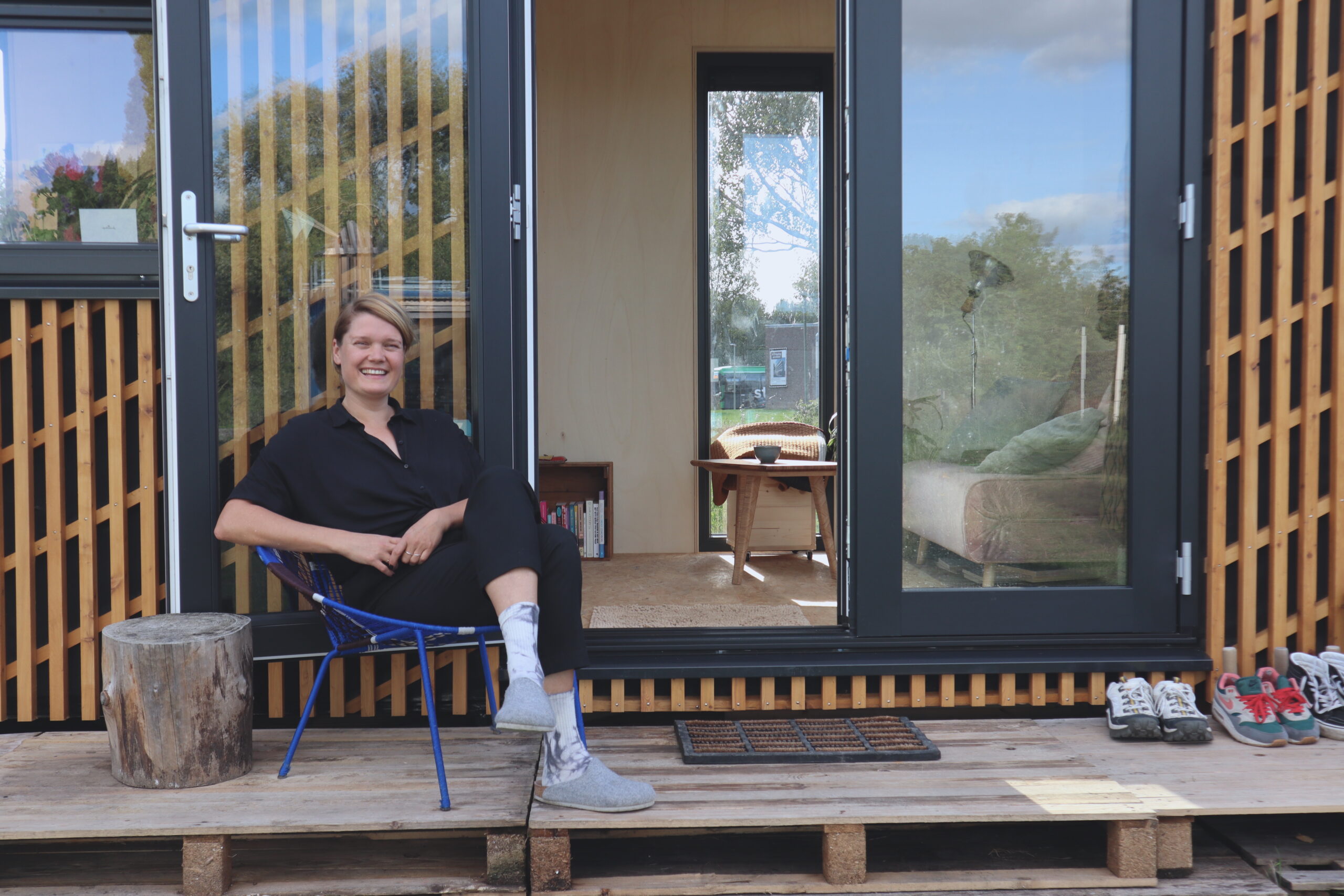
Busra Kondakci
From living between bricks, to living in nature
“It all started in the first lockdown, during the corona pandemic. I was living in an apartment in a city center. I couldn’t leave the house and that time I was aware that there was not much green around my house. Then the idea started that I wanted to move out of the city center. But trying to move somewhere else is ridiculous, it’s so expensive and I thought that I can’t afford an idyllic house in the countryside.”
“Firstly, I saw a series about Mortgage free living. I think that’s where the seed was planted. In the following months, I talked about this idea with coworkers, friends and family. My dad was enthusiastic. He pulled me over my hesitation and doubt. He would also help me building. It took my almost a year from drawing to find builders who could help me. I sold my old house and moved to my dad to save more money and realize my dream. Back then, it felt like a big step. I wondered if I really wanted this? Invest all my money in this project? But I didn’t regret any moment of it.”
A lifestyle
“I already like the minimalistic lifestyle, that was my main drive. So, I just needed a house to fit my lifestyle. To be honest, I thought there was always one ideology. A probably vegetarian, who travels by train and cares about sustainability. I was looking though my green glasses. But as in society, we’re not all the same.”
"The house itself tells something about you"
Isn’t living in a tiny house romanticized?
“It is romantic! It’s wat it is, it’s true. You must be prepared that it’s going to be small and it’s going to be different, so you must be ok with that. It’s the completely different way of living. So, in my case, I have a compost toilet. I put sawdust on it after I used it and I need to empty it every two weeks.”
Enlarge
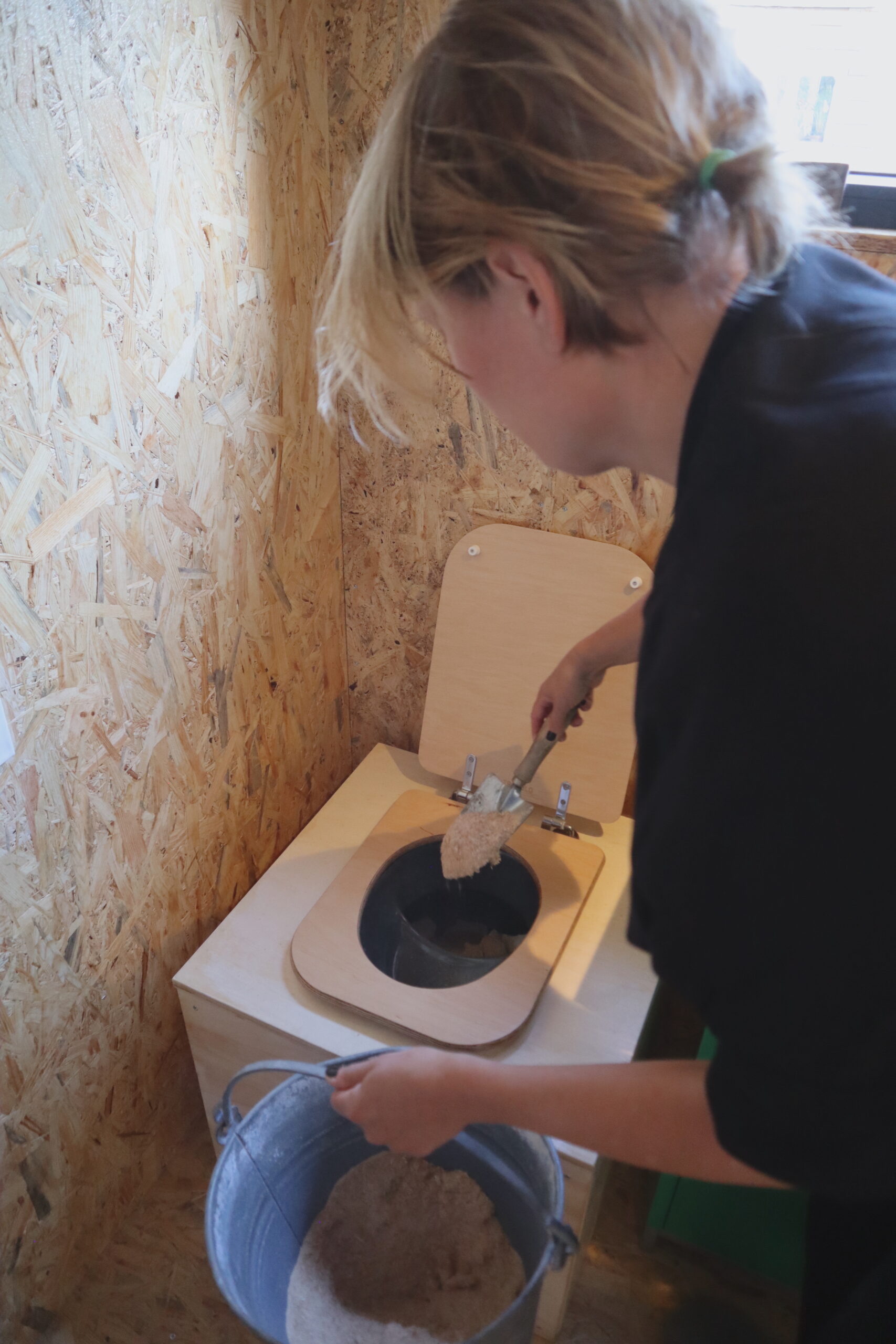
Busra Kondakci
“The only con I can come up with right now, is if it’s raining and muddy outside. I don’t have any place to put my dirty wet things. Living this way feels vert functional. It’s kind of a shelter. When you’re living in a big house, you have a lot of stuff that tells something about you. But this house itself tells something about your identity.”
Enlarge
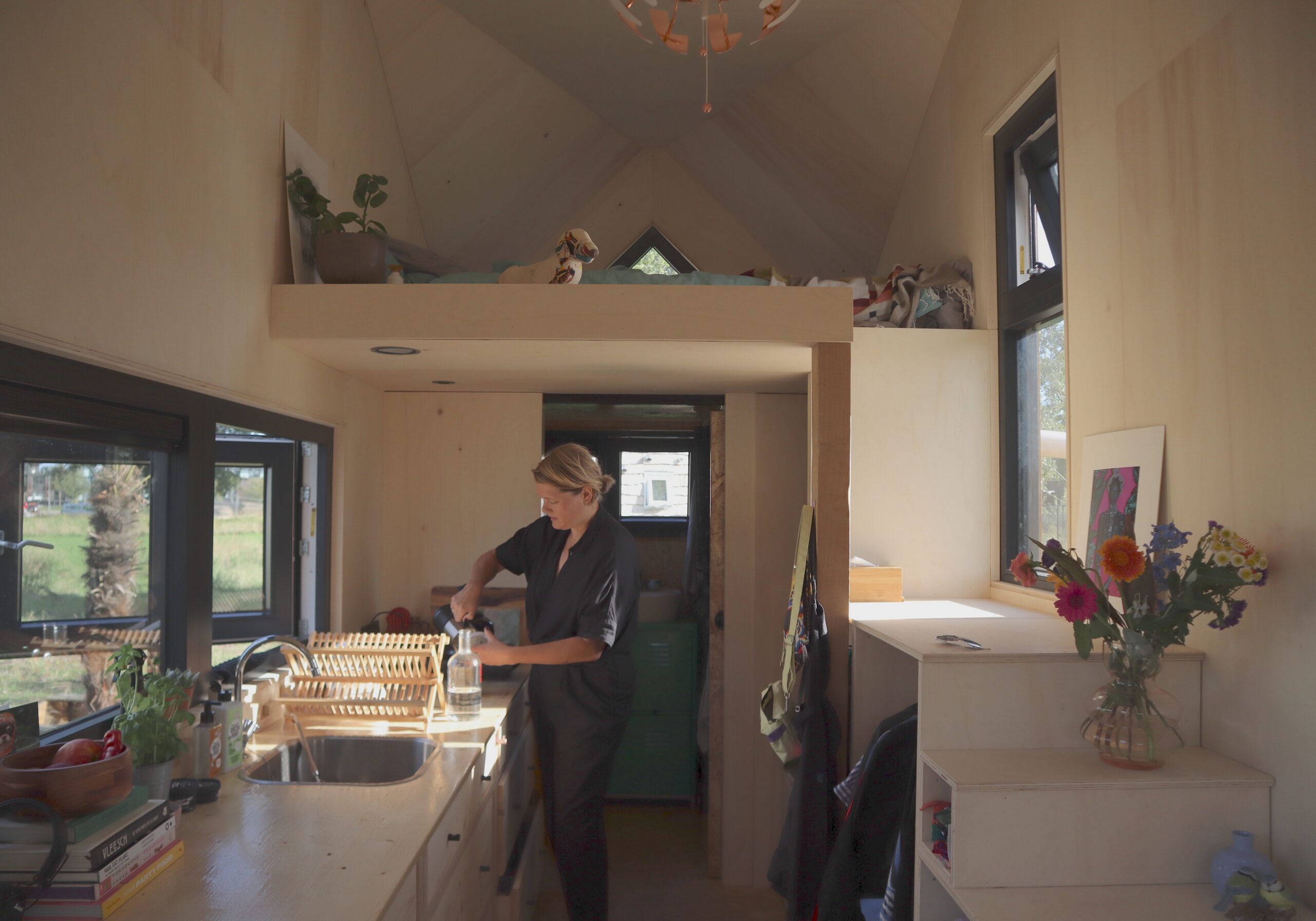
Busra Kondakci
What tells your tiny house about you?
“That I’m fan of esthetics, sometimes over function. I didn’t make it a very functional home. For example, the kitchen, it has its flaws. I by purpose didn’t make fold-out furniture, because I don’t like it. I like it when my house has a certain ecstatic and a design.”
"It’s a normal way of living and not just a campsite"
Enlarge
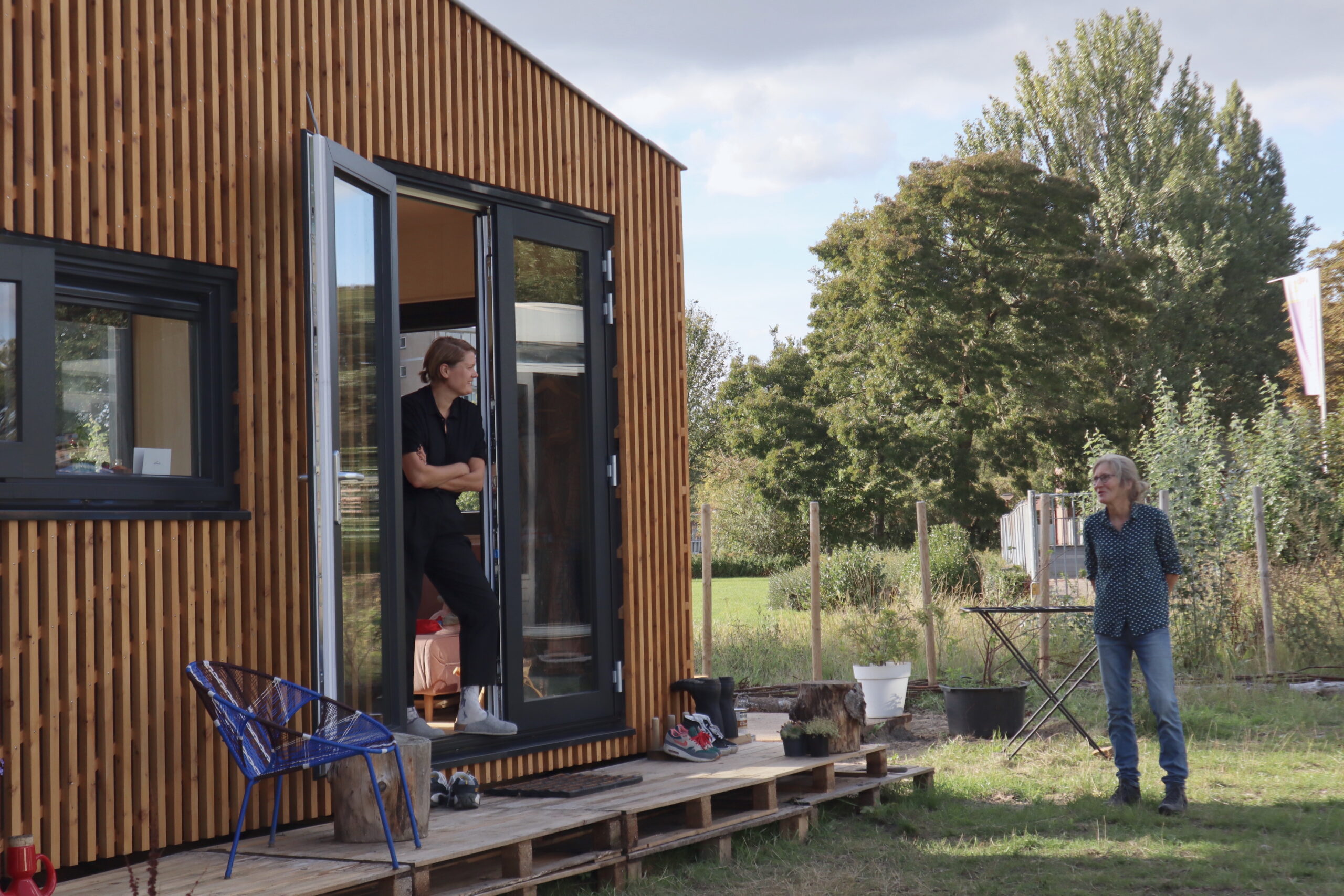
Busra Kondakci
The Tiny House community
“The movement is growing. But it’s not a very inclusive community. Municipalities have standards for houses. So, you need to have a certain amount of money to be able to build a house. There are sets of rules you need to obey. And in general, it costs a lot of money to rent or own a parcel. We really need to convince the government and people that it’s a normal way of living and not just a campsite. I hope there will be more funding and support from the municipalities. So, it would also be accessible for students or people who don’t have money.”
“There is a kind of stigma around this way of living. Because we’re doing something different. And I hope with the grow of the movement that this will be normalized.”
